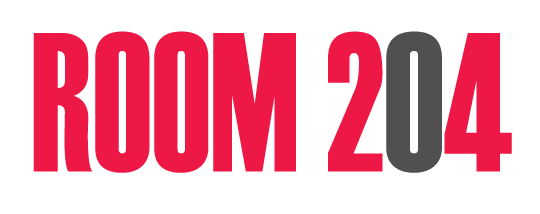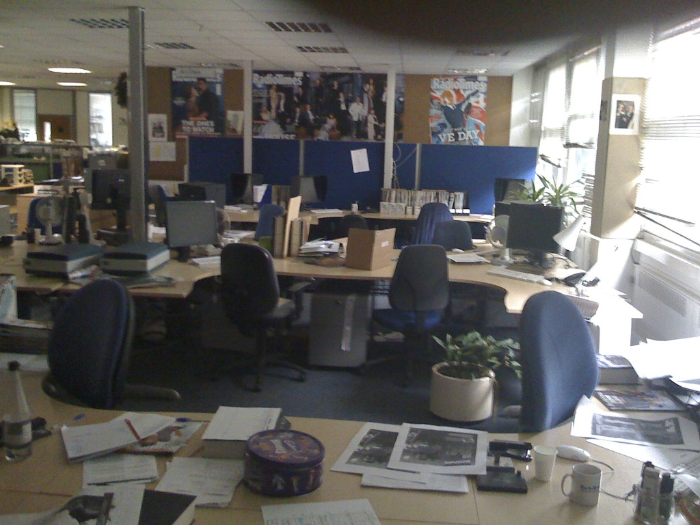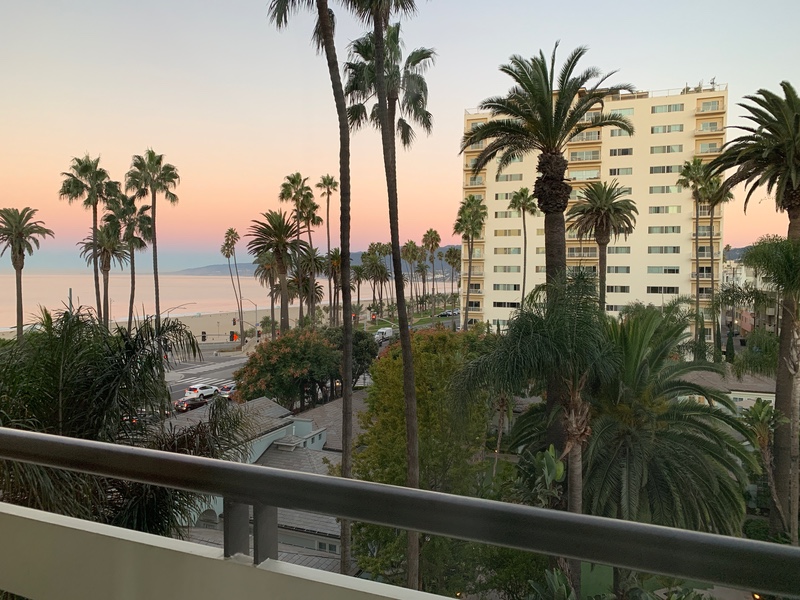I appear to be adding traditions as I get older, but fortunately, the latest one is not going to stick. I vowed that this year I will finish working on the Friday before Christmas. Specifically that I will switch my Mac off at 16:00 and refuse, utterly refuse to switch it back on until at least 16:05.
It won’t happen. I don’t know when I’ll finish because I am forty times busier than this time last year though, consequently, also one hundred percent happier.
There is a point, usually around midnight on New Year’s Eve, when I sink. Plummet, really. I don’t know how long it lasts because I go to bed to hide from it, but it’s frighteningly, disabling, paralysingly strong. It’s a bald and unarguable feeling that I’ve wasted the last year and a fear that I’ll waste the next one too.
I will get it again this New Year’s Eve but just for once, maybe just for now, I think it’ll be okay.
For this week I found myself telling someone how I have never written better than I am writing now. You can question just how well that actually is, but the trend is upwards in my mind.
And then recently I was in a conversation about how poor my secondary school was. It was suggested that I’d have got further and done more if it hadn’t been so bad. I’m embarrassed to tell you this but without thinking, without pause, I found myself saying “Better than this?”
I can rationalise that as being less about my thinking I’m doing great and instead knowing that the projects I get to work on are tremendous. I will not say that I’m lucky to be doing what I do because it ain’t luck, it’s deliberate and ceaseless effort, but I’ll eat your ear off about how fortunate I am to work on these things with these people.
Still, I sounded like I was boasting and I am cringing at you here because I also sounded high-pitched.
Just between you and me, that was the only bit I really didn’t like. I may practice saying it with more gravitas. Actually, I might: if I can, I’d like to make that attitude be more of a habit.
Whereas I haven’t been so intentionally looking to make traditions yet I’ve now got two that I look forward to at this time of year. Two that I crave each Christmas.
One is old, as old as traditions are supposed to be, and I can’t even remember how many decades it’s been now. Through coincidence, chance, habit and possibly a little bit of effort, I tend to get between ninety minutes and two hours alone early on Christmas Eve. It’s exactly the point where it no longer matters whether you’ve finished all your work because there is nobody to deliver it to, nobody who’s waiting for it. Not right now, not right then.
I’ve called this a Lagrange Point before. That’s an astronomy term and in my slightly buckled metaphorical version, it’s a moment of stillness caused by all the forces around you equalling each other out. They’re still there, they are still as powerful and demanding, but they equal each other out and I float.
Previously I’ve chosen to spend this time catching up on a film I’ve wanted to see but that’s probably over now. I’m probably going to read, perhaps listen to something. Just not watch a film or at least I don’t think so. Because that’s now the newer of my two Christmas Eve traditions.
I’ll wait to midnight. I’ll be with family for most of the evening, I’ll do Christmas Eve-y things and then as close to midnight as I can make it, I will be in our living room and I’ll re-watch the film Arrival.
There are people who say you should go to midnight mass, that you should experience some religion at this time and to them I say yep, that’s exactly what I’m doing.
The film is about many things but most specifically language and time, subjects that obsess me beyond reasonable measure. I have a collection of time short stories that is currently due to come out next year (it may slip to 2020) and I was writing them when I first saw the film. I’m not going to say that Arrival made me want to rip them all up, but only because that would look quite bad as the quote on the back of my book.
This Arrival Lagrange Point started because the film got a limited re-release at Christmas in 2016 and the only screening I could get to was a late night Christmas Eve one. That was the fourth time I’d seen the film that year. It was the third time in the cinema and of course I bought it on iTunes, of course I watched it on our TV set.
Then last Christmas, I watched it again at home at midnight on Christmas Eve 2017. Since then and throughout this year I have avoided it, I have resisted it and I have waited for it.
Midnight, Christmas Eve, 2018. Arrival. Damn right.


